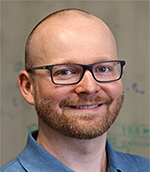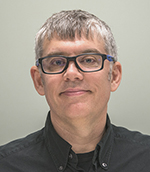Deep learning and mapping: Automating the repetitive
Wed. Nov. 7 12:20 PM
- Wed. Nov. 7 01:20 PM
Location: 5L24 Lockhart Hall
Deep learning neural networks (DLNNs) have made great strides in recent years in terms of accuracy, In training time, and processing speeds. Capitalizing on the newest generations of GPUs which enable faster training and classification times, the use of DLNNs have resulted in a disruptive shift in how land use land cover maps can be produced. This talk will focus on the role that DLNNs can play within the realm of satellite image segmentation and how these systems can play a significant role in automating various aspects of our mapping workflows.
 Dr. Christopher Henry
Dr. Christopher Henry
Department of Applied Computer Science, The University of Winnipeg
Dr. Christopher Henry's research focus is to develop theoretical frameworks and applications to quantify the similarity of objects, sets of objects, and collections of these sets based on features that characterize intrinsic object attributes. The goal is to use these frameworks to solve real-world problems in a manner similar to humans performing these same tasks. This work has significant overlap to machine learning and semantic segmentation of images.
 Dr. Christopher Storie
Dr. Christopher Storie
Department of Geography, The University of Winnipeg
Dr. Christopher Storie’s research focuses on the analysis of big data within the field of remote sensing. He uses high performance computing to assist in the training and development of deep learning neural networks. His current research focuses on the semantic segmentation of satellite imagery into land use/land cover classes.
